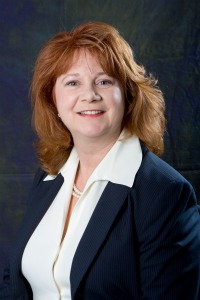Everyone is talking about
Groupon, the Chicago-based start-up that has somehow taken an old idea of clipping coupons and leveraged into a company that has become the unrivalled new paragon of business innovation. Innovation fandom began quickly, with Groupon winning a
Chicago innovation award in late 2009 when it was less than a year old and expanding throughout the country so meteorically and so successfully that
Fast Company magazine has just selected it as the No. 5 "most innovative company" in the world. Yes, in the world. The magazine describes Groupon as "a savior for small businesses" and "the most exciting thing to happen to retail since eBay."
 This week
This week Illinois Governor Pat Quinn has selected Groupon co-founder Brad Keywell to be part of a new Innovation Council, dedicated to find creative ways to boost the economy. Primary founder Andrew Mason (left) has become the poster boy for innovation, quoted often, pictured playfully and suddenly a high priest of all that's creative.
Groupon is everywhere, not just in my inbox every morning and beeping me with its latest update thanks to an app on my smartphone (yes, I'm a user), but referred to constantly throughout the culture. Last night on the Daily Show, Jon Stewart examined Obama's latest budget cutting attempts: "From now on when we buy office supplies," he mock-quoted the President, "we will join up with Canada and Mexico to look for deals on Groupon." The viral rise of copycat companies has reached absurdity levels, not just limited to those offering local deals of the day. "It's like Groupon, but with a twist," explains
WeedMaps founder Justin Hartfield, offering deals, I kid you not, on medical marijuana.
Check it out, as reported in Fast Company. National articles about Groupon are written everyday, including this one in
this week's Time magazine.
The hype indicates how desperate we are here in Chicago and in our country to embrace, understand and promote innovation. Groupon has become the start-up model of the kind of innovation political and business leaders refer to: a creative idea with real value, in this case leading to impressive money-making, job creation and investment hunger so great that Groupon recently resisted Google's attempt to buy it for $6 billion. Yes, $6 billion for a company barely two years old.
Groupon does have a creative business model, which is primarily based on getting a large group of people to buy a discounted voucher (You have to pay for it, more like a gift certificate than a coupon from the paper) to various restaurants and local attractions. But there is some real question about its future--given that many businesses suffer real losses and have other problems. Check out this
Chicago PBS television segment airing yesterday, entitled "Losing money with Groupon," which describes some issues. As customers, we like the deals but many of us are already at a saturation point, annoyed by expiration dates and too many offers we can't keep up with. So to call it one of the most innovative companies in the world seems a bit hasty.
I have found Groupon's technology to be top-notch, which is no small secret to its success. But overall
I do have to give it real credit for brimming with creativity, from the wacky improvised descriptions of offers to its attempts to take risks and playfully try new things. Groupon originally came out of an altruistic attempt to bring people together for social causes and according to founder Mason, "There was a kind of freedom that came with not caring if it failed." And fail it has, included the offensive Superbowl ad campaign (video above or
click here) which pissed a lot of people off and Mason later apologized for.
From its visuals to its relationships with customers and companies, Groupon embraces creativity in a way that bodes ongoing success. It's playful, snappy and engaging, and working on personalizing the experience more and more. And Mason, who acknowledges his own and the company's immaturity on different levels, seems to have the right attitude for innovation going forward. "One of the challenges of innovation is figuring out how to wipe your mind clean about what you should be doing at any given moment," he says, "and not having a religious attachment to what's gotten you there thus far."
 I wanted to share a recent article from Psychology Today, once again attesting to creativity as a top 21st century skill--needed by all at every age:
I wanted to share a recent article from Psychology Today, once again attesting to creativity as a top 21st century skill--needed by all at every age:
 Special guest speaker is Carol Bradford, Senior Counsel to and Charitable Advisor at the California Community Foundation (CCF), a nonprofit organization serving the communities of Los Angeles since 1915. Ms. Bradford will share with the crowd her thoughts about how innovation fulfills a critical need for today’s leaders.
Special guest speaker is Carol Bradford, Senior Counsel to and Charitable Advisor at the California Community Foundation (CCF), a nonprofit organization serving the communities of Los Angeles since 1915. Ms. Bradford will share with the crowd her thoughts about how innovation fulfills a critical need for today’s leaders.

